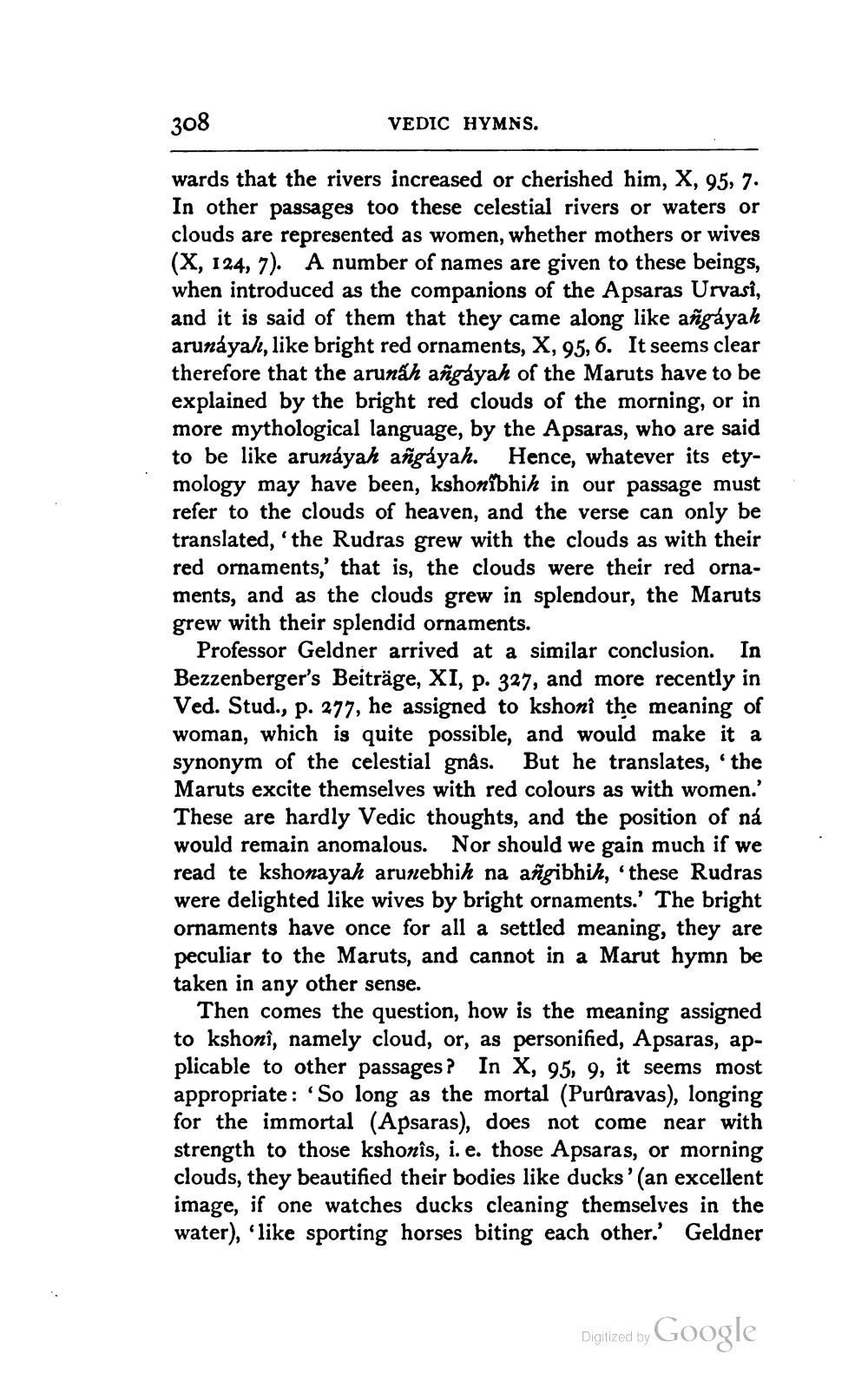________________
308
VEDIC HYMNS.
wards that the rivers increased or cherished him, X, 95, 7. In other passages too these celestial rivers or waters or clouds are represented as women, whether mothers or wives (X, 124, 7). A number of names are given to these beings, when introduced as the companions of the Apsaras Urvasi, and it is said of them that they came along like añgayah arunayah, like bright red ornaments, X, 95, 6. It seems clear therefore that the arunah añgayah of the Maruts have to be explained by the bright red clouds of the morning, or in more mythological language, by the Apsaras, who are said to be like arunayah añgayah. Hence, whatever its etymology may have been, kshonibhih in our passage must refer to the clouds of heaven, and the verse can only be translated, the Rudras grew with the clouds as with their red ornaments,' that is, the clouds were their red ornaments, and as the clouds grew in splendour, the Maruts grew with their splendid ornaments.
Professor Geldner arrived at a similar conclusion. In Bezzenberger's Beiträge, XI, p. 327, and more recently in Ved. Stud., p. 277, he assigned to kshoni the meaning of woman, which is quite possible, and would make it a synonym of the celestial gnâs. But he translates, the Maruts excite themselves with red colours as with women.' These are hardly Vedic thoughts, and the position of ná would remain anomalous. Nor should we gain much if we read te kshonayah arunebhih na angibhih, “these Rudras were delighted like wives by bright ornaments.' The bright ornaments have once for all a settled meaning, they are peculiar to the Maruts, and cannot in a Marut hymn be taken in any other sense.
Then comes the question, how is the meaning assigned to kshonî, namely cloud, or, as personified, Apsaras, applicable to other passages? In X, 95, 9, it seems most appropriate: 'So long as the mortal (Pururavas), longing for the immortal (Apsaras), does not come near with strength to those kshonis, i.e. those Apsaras, or morning clouds, they beautified their bodies like ducks' (an excellent image, if one watches ducks cleaning themselves in the water), 'like sporting horses biting each other.' Geldner
Digitized by
Digilzed by Google




